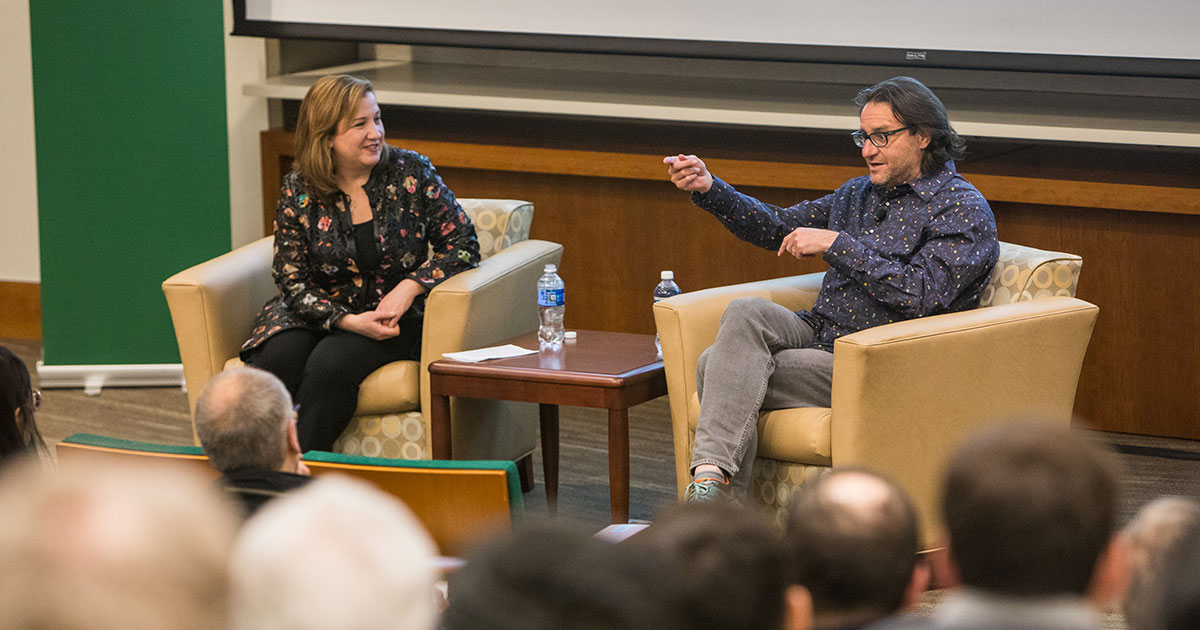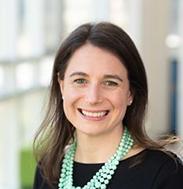Building Startup Communities with Brad Feld

“Any city anywhere in the world should be able to support . . . a startup community.”
So said venture capitalist, entrepreneur, and author Brad Feld to an audience of Babson student and alumni entrepreneurs, faculty, and staff. Those startup communities, he said, are dynamic and complex things.
At a fireside chat ranging in topics from the Boulder Thesis, to networks made up of nodes (people) and feeders (organizations like Babson), to the role of government vis-à-vis entrepreneurship, Feld painted an incredibly rich picture of entrepreneurial ecosystems.
The fireside chat was a part of a special evening, during which President Stephen Spinelli Jr. MBA’92, PhD, announced the establishment of the new Butler Institute for Free Enterprise Through Entrepreneurship. Made possible by a $10 million gift from John E. Butler ’52 and his family, the Institute will seek to impact entrepreneurship on a macro level, exploring how government policies, social values, and ethical business practices can influence ecosystems.
In conversation with Debi Kleiman, executive director of The Arthur M. Blank Center for Entrepreneurship, Feld shared his perspective on what it takes to build startup communities and the lessons he has learned during the course of his career.
Creating Value
For several years, Feld held what he called “random days,” days that he dedicated to 15-minute meetings with new people. He would preface a meeting by saying, “The next 15 minutes of my life belong to you.” In these meetings, he had two goals. The first was to learn something; the second was to provide something of value to the other person, be it a resource or a connection.
He got something of value, too. During one of those meetings in 2016, entrepreneur and investor David Cohen pitched him on the idea of a mentorship-based startup accelerator. Feld was sold on the idea and lined up another investor with a quick phone call. This team went on to become the founders of Techstars, today a global network of accelerators having grown 1,900 companies with a combined market cap of $22.1 billion.

Playing the Long Game
Feld commented on the “competitive feeling” of venture capital today, noting that the rhetoric of winning and losing has become common. He takes a very different perspective: “I personally try not to have schadenfreude about anything.”
Instead, he chooses to be positive and supportive. So while he may have passed on investing in Twitter and Lyft, he doesn’t let it bother him. “Good luck, I hope you win,” he said. “And if I can be helpful, great, because this is a long-term game.”
Finding the Fit
When it comes to the businesses Feld does invest in, he and his team at Foundry Group look for three things.
First, they look for obsession: “Are the founders obsessed about what they are doing? Were you put on planet Earth to do this thing that you’re working on?”
Second, they ask, “Do we have an affinity for the thing that the company is doing?” They want to care about the product. That connection means they will stay more engaged through the ups and downs.
Third, they want to partner with founders who want to partner with them just as badly.
During an audience Q&A, Feld offered advice to both investors and entrepreneurs. For investors: Turn your returns into investments in the innovation economy. For entrepreneurs: Educate those with financial capital about the importance of investing in the startup community.
Finally, in the spirit of Entrepreneurial Thought & Action, Feld urged entrepreneurs to do what they can with what they have at hand, leveraging the other forms of capital that they already have.
Posted in Community




